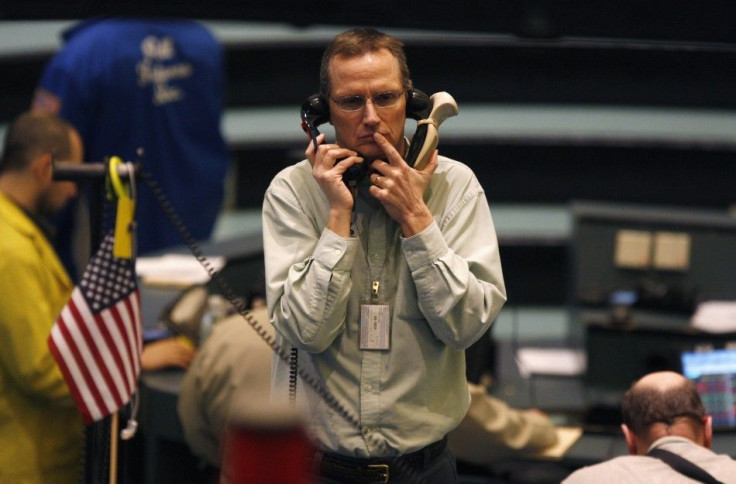Gold on Track for Biggest Weekly Loss Since June

Gold prices pared losses in choppy trade on Friday but were still on track for their biggest weekly loss since June as some investors cashed in gains after losing confidence in the metal's ability to build on this week's record highs.
Prices fell sharply earlier in the session, dropping $20 an ounce in a single minute. Traders blamed heavy fund liquidation on the New York futures market, where trading volumes jumped by 3,000 lots shortly after 0600 EST.
Gold found little support as it slid below $1,830 an ounce as concerns grew its run-up to record highs may have been overdone. Talk of further central banks sales after Libya said on Thursday it had sold 29 tonnes of gold and the prospect of more margin hikes on Comex futures also unsettled traders.
Spot gold was down 0.6 percent at $1,857.80 an ounce at 1339 GMT, having earlier risen as high as $1,885.50. It was well off its session low of $1,824.44 an ounce, however.
The metal has had a volatile week, trading in a near-$130 range after a swift correction followed Tuesday's record $1,920.30 an ounce.
People are probably very exposed to gold now, because they've been so bullish, yet the technicals aren't that great now that you've had that double-top pattern coming through, said Macquarie analyst Hayden Atkins.
There is no real direction provided by other markets, he added. I guess this is a sign that people are interested in taking profits at these kinds of prices, in the absence of direction from anywhere else.
Trade is expected to remain volatile ahead of a G7 finance ministers' meeting this weekend at which officials will come under heavy pressure to take action to revive economic growth.
France has called for a coordinated response from the Group of Seven nations after anxiety over Europe's debt crisis led world stock markets to drop in recent weeks, though differences between the economic problems facing the United States, Britain and euro zone states are complicating the task.
Other markets provided little direction to gold. U.S. stocks dipped at the open, European shares fell as traders were unimpressed by a $447 billion jobs package unveiled by U.S. President Barack Obama on Thursday, and the dollar rose.
U.S. gold futures for December delivery ticked up $3.90 an ounce at $1,861.40.
SCRAP RETURNS TO THE MARKET
There were some signs that high prices were attracting recycled metal back to the market. Japan's largest bullion house, Tanaka Kikinzoku Kogyo, said it recycled a record 1.9 tonnes of gold from jewellery brought in by customers in August alone as prices hit record highs.
Among other precious metals, silver was down ' percent at $41.86 an ounce.
The gold:silver ratio -- the number of silver ounces needed to buy and ounce of gold -- steadied at around 44 after dropping to as low as 31 in April as both metals hit record highs. Buyers are wary of silver after its sharp correction early this year.
With the deterioration in the economic outlook for both Europe and the U.S., and the recovery in Japan appearing to have paused at least temporarily, demand for silver from the global electronics industry appears to be under threat, which may leave the metal vulnerable to potential price underperformance versus gold, said Natixis in a weekly report.
Spot platinum was down 0.9 percent at $1,839.24 an ounce, while spot palladium was down 1.4 percent at $741.72 an ounce.
Platinum is looking increasingly attractive in comparison to gold as prices trade at a discount to the yellow metal. Some traders said this trade was putting pressure on gold.
Historically gold is about half the price of platinum, said Lars Steffenson, managing director at Ebullio Capital Management. In the last two, three weeks you've actually seen gold spike to levels where it shouldn't be.
That obviously has to do with the sheer volume coming into gold, but a lot of the (funds) are looking long term and saying this doesn't make sense. There is an awful lot of gold and platinum is quite tight. Plus you have the whole South African situation, labour relations deteriorating.
© Copyright Thomson Reuters {{Year}}. All rights reserved.






















